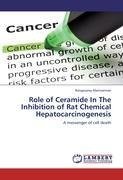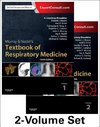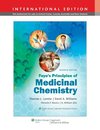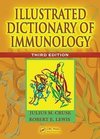
-
 Anglický jazyk
Anglický jazyk
Role of Ceramide In The Inhibition of Rat Chemical Hepatocarcinogenesis
Autor: Rangasamy Manivannan
Ceramide are family of lipid molecules. Ceramide consist of a Long-chain or Sphingoid base linked to a fatty acid via an amide bond. Ceramide has emerged as a key regulator of a wide spectrum of biological processes such as cellular differentiation, proliferation,... Viac o knihe
Na objednávku
44.35 €
bežná cena: 50.40 €
O knihe
Ceramide are family of lipid molecules. Ceramide consist of a Long-chain or Sphingoid base linked to a fatty acid via an amide bond. Ceramide has emerged as a key regulator of a wide spectrum of biological processes such as cellular differentiation, proliferation, programmed cell death (PCD), and apoptosis of cells. Cell proliferation studies were carried out in chemically induced rat hepatocarcinogenesis. Immunostaining of PCNA, Ki-67 and BrdU results revealed that, Group C rats showed a minimal PCNA expression, decrement in ki-67 expression and Low BrdU labeling suggesting the suppressive potential of Ceramide. DNA Damage and DNA protein cross link results revealed that, length and width ratio of DNA masses and Tailed cells were better in group C than that of Group B. Chemopreventive effect of Ceramide in apoptosis, study indicates a significant increase in the apoptotic labeling index in the Group C compared to that of group B as documented by TUNEL assay. Histochemical and Histopathological results suggested that,liver weight,GGT-Positive foci andtumor incidence were better in group C than Group B.Ceramides were shown a promising chemopreventive potential against hepaticcancer.
- Vydavateľstvo: LAP LAMBERT Academic Publishing
- Rok vydania: 2012
- Formát: Paperback
- Rozmer: 220 x 150 mm
- Jazyk: Anglický jazyk
- ISBN: 9783659187377












